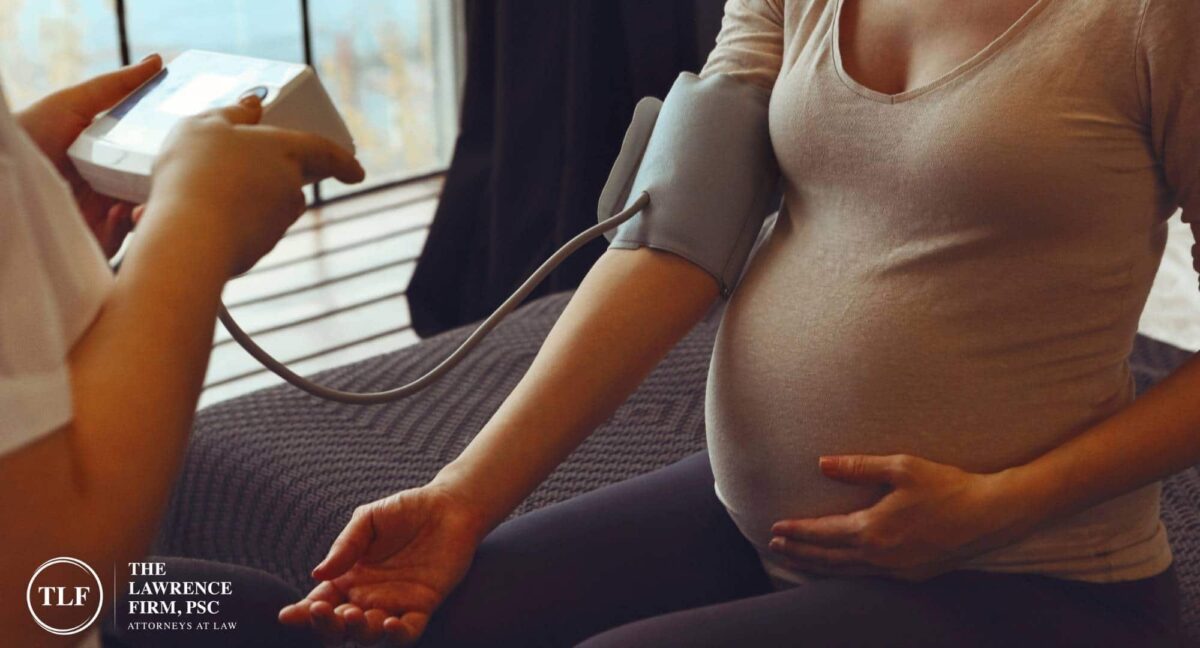Pregnancy should be a time of joy and anticipation as expectant parents eagerly await the arrival of their bundle of joy. However, amidst the excitement, there are certain medical conditions that can pose serious risks to both the mother and the baby. One such condition is preeclampsia, a potentially life-threatening condition that demands prompt diagnosis and appropriate medical intervention.
In this blog post, the Ohio and Northern Kentucky medical malpractice attorneys at TLF: The Medical Injury Law Firm dive into the signs and symptoms of preeclampsia, discuss the importance of recognizing warning signs, and shed light on how a healthcare provider’s failure to diagnose and treat preeclampsia can result in harm to both the mother and the baby.
Understanding Preeclampsia: What Is It?
Preeclampsia is a disorder that occurs during pregnancy and is characterized by high blood pressure and in severe cases, can cause organ damage, often the liver and kidneys. It typically develops after the 20th week of pregnancy, although it can occur earlier or postpartum. Preeclampsia can lead to serious complications for both the mother and the baby if left untreated.
Recognizing the Signs and Symptoms: Warning Signals for Patients
- High Blood Pressure: Elevated blood pressure is a hallmark sign of preeclampsia. Blood pressure readings consistently higher than 140/90 should be monitored closely.
- Proteinuria: Another significant indicator of preeclampsia is excess protein in the urine. This can be detected through routine prenatal screenings.
- Swelling: Swelling, particularly in the hands, feet, and face, can be an early warning sign. However, some swelling is normal in pregnancy, so it’s essential to differentiate between mild swelling and excessive fluid retention.
- Headaches: Persistent or severe headaches that do not respond to over-the-counter pain relievers could be indicative of preeclampsia.
- Visual Disturbances: Changes in vision, such as blurriness or flashing lights, might be a symptom of preeclampsia and should be taken seriously.
- Upper Abdominal Pain: Pain in the upper abdomen, particularly on the right side, could signal liver involvement and requires immediate medical attention.
- Shortness of Breath: Difficulty breathing or shortness of breath can be a warning sign, as it may suggest fluid accumulation in the lungs.
The Role of Healthcare Providers: Diagnosis and Treatment
Prompt diagnosis and appropriate medical management are crucial in mitigating the risks associated with preeclampsia. Healthcare providers must be vigilant and thorough in their assessments to identify the signs and symptoms early on. Failure to diagnose and treat preeclampsia in a timely manner can have severe consequences.
Potential Injuries Resulting from Failure to Diagnose and Treat Preeclampsia
- Maternal Complications: Untreated preeclampsia can lead to seizures, stroke, organ failure, and even maternal death.
- Fetal Complications: The baby may experience growth restriction, low birth weight, premature birth, and oxygen deprivation, leading to developmental issues or even stillbirth.
- Eclampsia: In some cases, preeclampsia can progress to eclampsia, which involves seizures. Eclampsia poses significant risks to both the mother and the baby.
Legal Implications: Seeking Justice for Medical Negligence
When healthcare providers fail to diagnose or adequately manage preeclampsia, it may constitute medical negligence. Families affected by such negligence have the right to seek legal recourse to hold responsible parties accountable for their actions. A medical malpractice lawsuit can provide compensation for medical expenses, pain and suffering, and other damages resulting from inadequate care.
Preeclampsia is a serious medical condition that requires prompt diagnosis and appropriate treatment. Expectant mothers should be aware of the warning signs and advocate for their health. Healthcare providers play a pivotal role in safeguarding the well-being of both the mother and the baby. Failure to recognize and manage preeclampsia can lead to catastrophic consequences, highlighting the critical importance of proper medical care during pregnancy and labor and delivery.
If you or a loved one have experienced complications due to a healthcare provider’s failure to diagnose or treat preeclampsia, our dedicated Cincinnati and Northern Kentucky medical injury attorneys are here to support you. Contact us today to discuss your case and explore your legal options.

